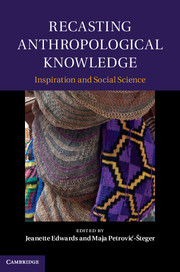Book contents
- Frontmatter
- Contents
- Contributors
- Acknowledgements
- 1 Introduction
- 2 Writing the parallax gap
- 3 Too big to fail
- 4 ???Hybrid custom??? and legal description in Papua New Guinea
- 5 Entomological extensions
- 6 Kinship and the core house
- 7 Invisible families
- 8 Knowledge in a critical mode
- 9 Spools, loops and traces
- 10 Inspiring Strathern
- Bibliography
- Index
4 - ???Hybrid custom??? and legal description in Papua New Guinea
Published online by Cambridge University Press: 07 September 2011
- Frontmatter
- Contents
- Contributors
- Acknowledgements
- 1 Introduction
- 2 Writing the parallax gap
- 3 Too big to fail
- 4 ???Hybrid custom??? and legal description in Papua New Guinea
- 5 Entomological extensions
- 6 Kinship and the core house
- 7 Invisible families
- 8 Knowledge in a critical mode
- 9 Spools, loops and traces
- 10 Inspiring Strathern
- Bibliography
- Index
Summary
Papua New Guinea’s Underlying Law Act 2000 was on the face of it a radical piece of legislation. It sought, among other things, to direct the courts to apply themselves more assiduously to the task of integrating custom into something called the ‘underlying law’ – that is, by privileging customary law over the common law of the Commonwealth to which Papua New Guinea is an heir. The concept of the ‘underlying law’ comes straight from the Constitution of the country, in which this resource is listed at the end of a seven-tiered hierarchy of laws which govern the country (Constitution Part II Division 1). But it is far more than a bit of documentary legalism; the underlying law was very much alive in my interviews with legal elites in Papua New Guinea that informed the research on which this chapter is based. On repeated occasions, the underlying law was mentioned by my interlocutors as difficult to develop, either because of insufficient judicial activism or initiative by lawyers, because of the reliance on district and national courts to do the job when really the responsibility rests with the village courts, and so on. I was fascinated by the constant invocation of the underlying law as something which was self-evidently desirable but always, frustratingly, just out of reach of the capacity of legal practitioners to bring it into being.
Indeed my very presence in the country to conduct this research was a result of the widespread (although not necessarily universal) sentiment that neither before nor since the passage of the Act has much movement towards the development of the underlying law happened (Jessep 1998; Ottley 2002). While I had conceived of the project as an exploration of the use by district and national courts of the ‘customary law’ concept, my research was gently but persistently redirected by legal colleagues and interlocutors towards the underlying law. For example, the Deputy Chief Justice observed to me that since the common law and equity are derived from case law, a similar process of documentation of customary law could provide an analogous source, a ‘practical way to develop the principles of underlying law’. Customary law was not the issue on anyone’s mind; when I asked about it, the question was invariably reframed through discussion as one of how custom could contribute instrumentally to the development of the underlying law. Filer (2006: 67–8) identifies this notion as having arisen from the nationalist moment of independence, when ‘the legal fraternity, which had formerly dismissed the concept of “customary law” as an oxymoron, now recovered its integrity in the form of an “underlying law” which had survived the colonial encounter, but still lay buried in the ground beneath the colonial edifice of legal institutions’. Where Filer found the underlying law concept archaeological in nature, my interlocutors (in a not unrelated vein) seemed to find it ethnographic: my proper job, some suggested, was to go and learn about customary law in the rural areas of Papua New Guinea and then write it all down for the lawyers and judges to make use of.
- Type
- Chapter
- Information
- Recasting Anthropological KnowledgeInspiration and Social Science, pp. 49 - 69Publisher: Cambridge University PressPrint publication year: 2011
- 3
- Cited by

